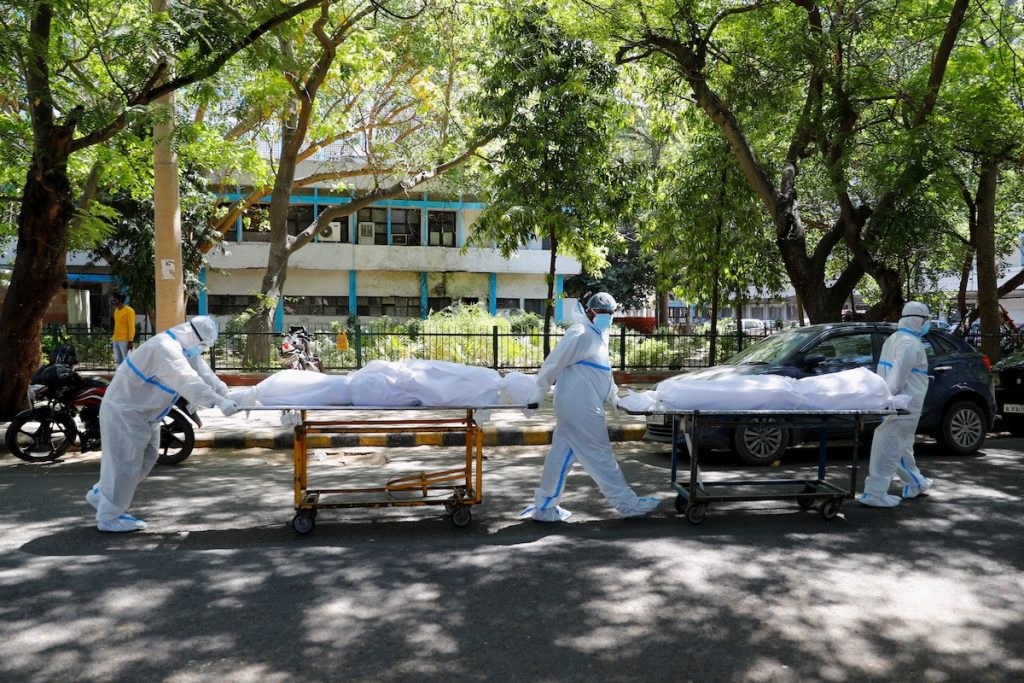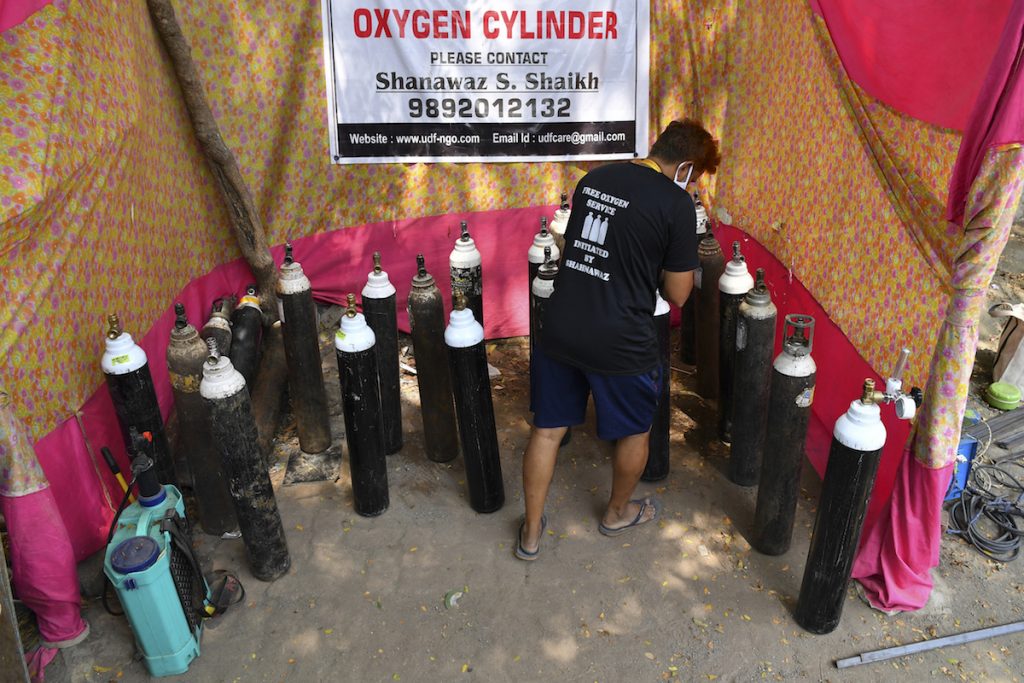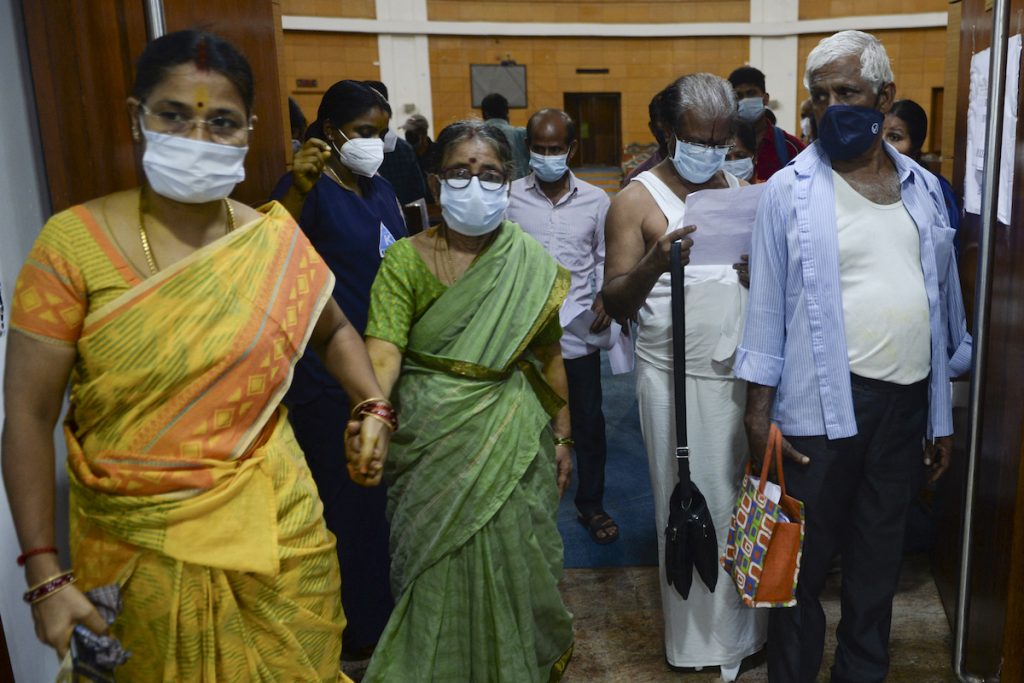
India’s total COVID-19 cases passed 18 million on April 29 after another world record daily infection and death tally as the Bharatiya Janata Party (BJP)-led government came under further criticism over its handling of the pandemic.
India reported 379,257 new COVID-19 cases and 3,645 new deaths on April 29, according to health ministry data. It was the deadliest day so far for any country hit by the pandemic, but the death toll is believed to be undercounted, and crematoriums and burial grounds are overrun.
The second wave of infections has overwhelmed many hospitals who have been starved of life-saving oxygen.
India’s first “Oxygen Express” train pulled into New Delhi on April 28, laden with about 70 tons of oxygen from an eastern state, but the crisis has not abated in the city of 20 million people at the epicenter of the world’s deadliest wave of infections.
“The current wave is extremely dangerous and contagious, and the hospitals are overloaded,” said Delhi Chief Minister Arvind Kejriwal, adding that a large public area in the capital will be converted into a critical care hospital.
Cardinal George Alencherry, chairman of the Council of Catholic Bishops of Kerala, expressed his concerns about the scarcity and rising costs of medical oxygen.
“There are many who cannot afford to buy medical oxygen because of the exorbitant prices,” said Cardinal Alencherry. “[The] availability of medical oxygen should be seen as a basic need and made freely available to Indian citizens,” he said.

Super-spreader events
Prime Minister Narendra Modi has been criticized for allowing massive political rallies and religious festivals which have been super-spreader events in recent weeks.
More than 8.4 million eligible voters are set to vote on April 29 in the last phase of an eight-part election in the eastern Indian state of West Bengal, even as the state witnesses a record rise in coronavirus cases.
“The people of this country are entitled to a full and honest account of what led more than a billion people into a catastrophe,” Vikram Patel, The Pershing Square Professor of Global Health in the Department of Global Health and Social Medicine at Harvard Medical School said in The Hindu newspaper.
Rights group Human Rights Watch said that healthcare experts have criticized the government for failing to invest in the country’s weak health infrastructure since the pandemic began.
The rights group pointed out that the country’s courts have repeatedly criticized the government for its failure to adequately address the pandemic.
Catholic Church leaders, such as Archbishop emeritus Thomas Menamparampil of Guwahati, have also been among the voices critical of the government’s handling of the crisis.
“Who is responsible for the current medical disaster? All of us, who have surrendered to the rule and will of one man in India. Narenda Modi and his government will have to take responsibility for the increase of 300,000 cases of COVID-19 a day,” Archbishop Menamparampil told Catholic agency Agenzia Fides.

Experts have said that India’s best hope to curb its second deadly wave of COVID-19 was to vaccinate its vast population. On April 28 the government opened registrations for everyone above the age of 18 to be given jabs from May 1.
But the country, which is one of the world’s biggest producers of vaccines, does not have the stocks for the estimated 600 million people becoming eligible.
Many people who tried to sign up said they failed, complaining on social media that they could not get a slot or they simply could not get online to register as the website repeatedly crashed.
“Statistics indicate that far from crashing or performing slowly, the system is performing without any glitches,” the government said in a statement late on April 29.
The second wave is also resulting in increased numbers of migrant workers fleeing cities and returning to their rural homes, mirroring an exodus which occurred at the end of March last year when a strict nation-wide lockdown was put in place. – With Reuters
Source: Licas Philippines
0 Comments